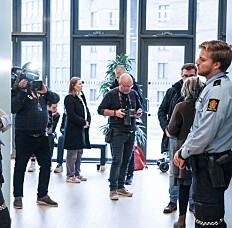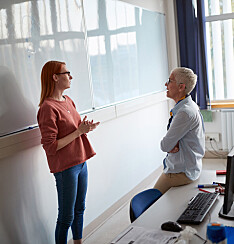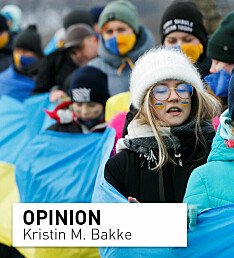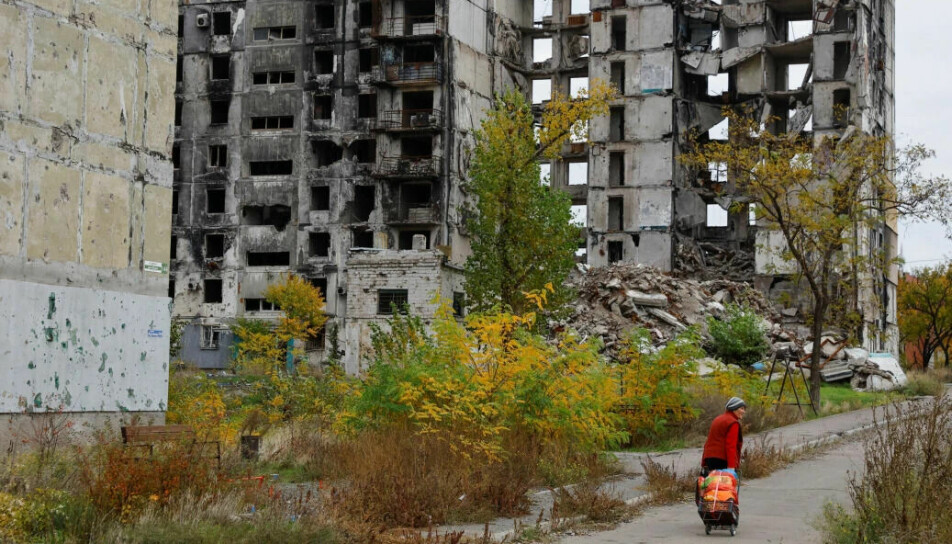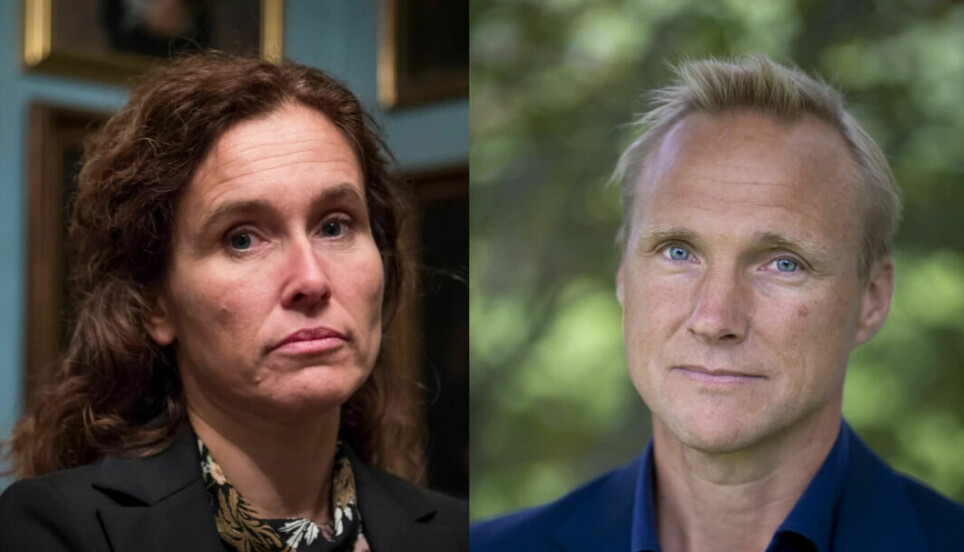
Researcher accused of running Putin’s errands when the war broke out: "I have never before experienced such difficult times”
When Russia went to war against Ukraine in February, the war also crept into research circles.
Some researchers ended up in the firing line in the media, here at home in Norway.
This is exactly what happened to Tormod Heier and Julie Wilhelmsen.
Heier is Professor in Military Strategy and Operations at the Command and Staff College. He ended his military career as lieutenant colonel in 2022.
Wilhelmsen is a senior research fellow at the Norwegian Institute of International Affairs (NUPI), specializing in among other areas Russian foreign and security polices.
She presents herself on Twitter as somebody who is “Accused of being pro-Russian, yet banned in Russia.”
Heier and Wilhelmsen were, for example, called “Putin-klakørene” (Putin's claquers) by Eirik Løkke in Vårt Land (link in Norwegian). Løkke is an adviser for Civita, a Norwegian liberal think tank.
A claquer refers to someone who is paid by someone to give applause.
During the Research Communication Days organised by sciencenorway.no recently, the two researchers talked about their experiences in the days and weeks following the 24th of February 2022.
Tougher than military exercises
“Pressure from the media came at all times of the day,” Heier said.
Although Heier was accustomed to the media, the Russia-researcher and lieutenant colonel began to lose sleep at night.
“I have worked in the Norwegian Armed Forces for 35 years and have taken part in many survival trainings and tough exercises. But I have never before experienced such difficult times as in these weeks after the outbreak of the war,” he said.
Heier calls himself a ‘yes man’. He has often appeared in the media and presented controversial findings.
But a couple of weeks after Russia invaded Ukraine, it was too much.
Gradually he became more and more tired.
“At that point it takes much less for the criticism directed at you to have a disproportionately large impact on your psyche,” Heier said.
According to Heier, the worst part of this entire experience was when his closest colleagues stayed silent as the criticism raged against him.
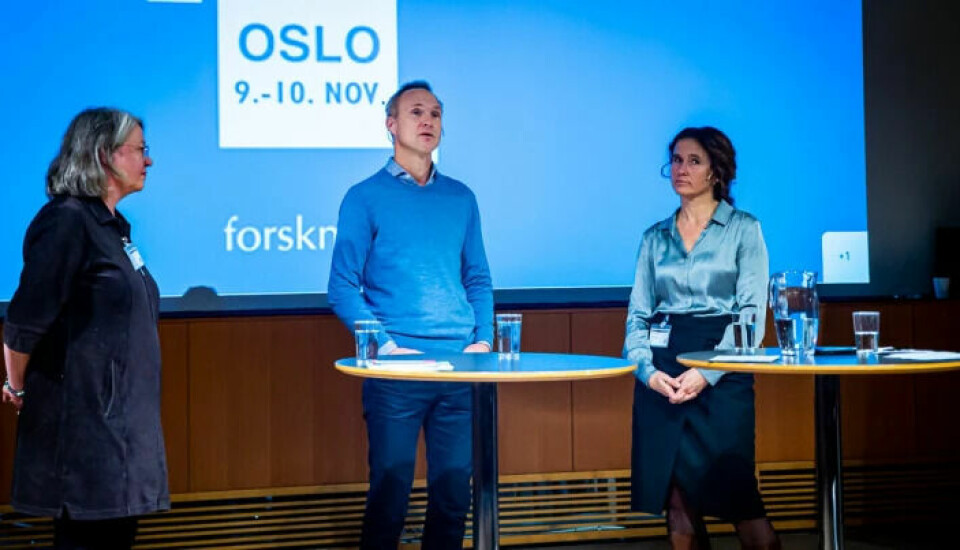
Admits he was wrong
In retrospect, Heier has admitted that he was wrong on some points.
He believed that Russia would not invade Ukraine, that Putin wouldn't be so stupid.
But when war did break out on the 24th of February, it was primarily his explanations of why the war started that provoked others.
One of his main arguments was that the US, the arch-rival in the West, had come closer and closer to Russia’s borders with its missiles and bombers. Ukraine had gradually turned towards defense cooperation with the US and become more interested in NATO.
Putin felt threatened, Heier explained.
Did not want to hear it
However, people didn't want to hear this, as it implies that we in the West are also partly to blame for the war.
What we wanted to hear was that Putin is an authoritarian leader who wants to reunite Greater Russia, Heier believes.
“War creates strong emotions. When the war hits close to home, these feelings become very strong. My experience was that those emotions went far beyond what was reasonable in the first days after the outbreak of war,” he said.
Was not surprised
Julie Wilhelmsen, senior researcher at NUPI, has studied Russia for 20 years.
In recent years, she has not been able to travel to the country she has been studying. She has been declared persona non grata because of her research on the war in Chechnya.
She has therefore studied texts which are written in the Kremlin.
Her research project in recent years has been to study the escalation in the relationship between Russia and the West since Russia's annexation of Crimea in 2014.
When she heard Putin's speeches just before the invasion, she realised that a tragedy lay ahead.
“For me, it was not unexpected that Putin could go to war. On the contrary,” Wilhelmsen said.
Could have done things differently
But she, just like Heier, is concerned with why this war was triggered.
“I believe that we cannot explain this war solely with reference to Putin's regime. We also have to explain it from the perspective of international interaction,” she said.
As a researcher, she tries to explain what the Kremlin is thinking. But this has provoked many who feel that she is sympathising with the Kremlin.
If she could turn back time, she would probably have done things differently, she says.
“When I went into the studio after the invasion, my lens was focused on precisely this relationship between Russia and the West. Because I have seen how the Putin regime has portrayed the West, I overlooked certain things in the regime's rhetoric that others study. For example, Russian imperialism,” she said.
Difficult to be a researcher during wartime
In a war, it becomes an extra difficult task to explain things from an academic point of view, where everything is not just black and white, Wilhelmsen believes.
“Nevertheless, the war is the researchers' time. We must continue to offer the various scenarios and explanations we have,” she said.
Even though not everyone likes it.
Wilhelmsen is disappointed with former Minister of Foreign Affairs Ine Eriksen Søreide (Conservative Party).
"Søreide implied that those who believe they 'understand' Russia need to consider whether they have fallen victim to Putin's propaganda," Wilhelmsen said.
But on the whole, Wilhelmsen believes that the researchers' various analyses are valued by politicians and others in society.
“It indicates that we still want to be a society built on knowledge where it is possible to present different arguments,” she said.
Younger researchers are intimidated
Wilhelmsen also found the media pressure to be very unpleasant.
Especially when the war crept into the research environment and her name appeared in negative messages in social media and in opinion pieces in the media.
Many younger researchers that Heier and Wilhelmsen have been in contact with have been frightened by the rough treatment they have received.
Most of all because there was also politicisation among colleagues in the professional circles, Wilhelmsen believes.
“If you are a young researcher who is going to apply for a doctoral grant, you start thinking about what you can and cannot say and what the professors think about what you say,” she said.
A democratic problem
This is a democratic problem, according to Agnete Schjønsby. She is a former head of communications at the Peace Research Institute Oslo (PRIO) and has seen for herself that young researchers have been frightened by the storm after the outbreak of war.
But she believes that Heier and Wilhelmsen actually have the opposite effect on the younger researchers.
“These researchers have not withdrawn from the spotlight. I think that is an inspiration to many not to give up,” Schjønsby said.
———
Translated by Alette Bjordal Gjellesvik.
Read the Norwegian version of this article on forskning.no
------








